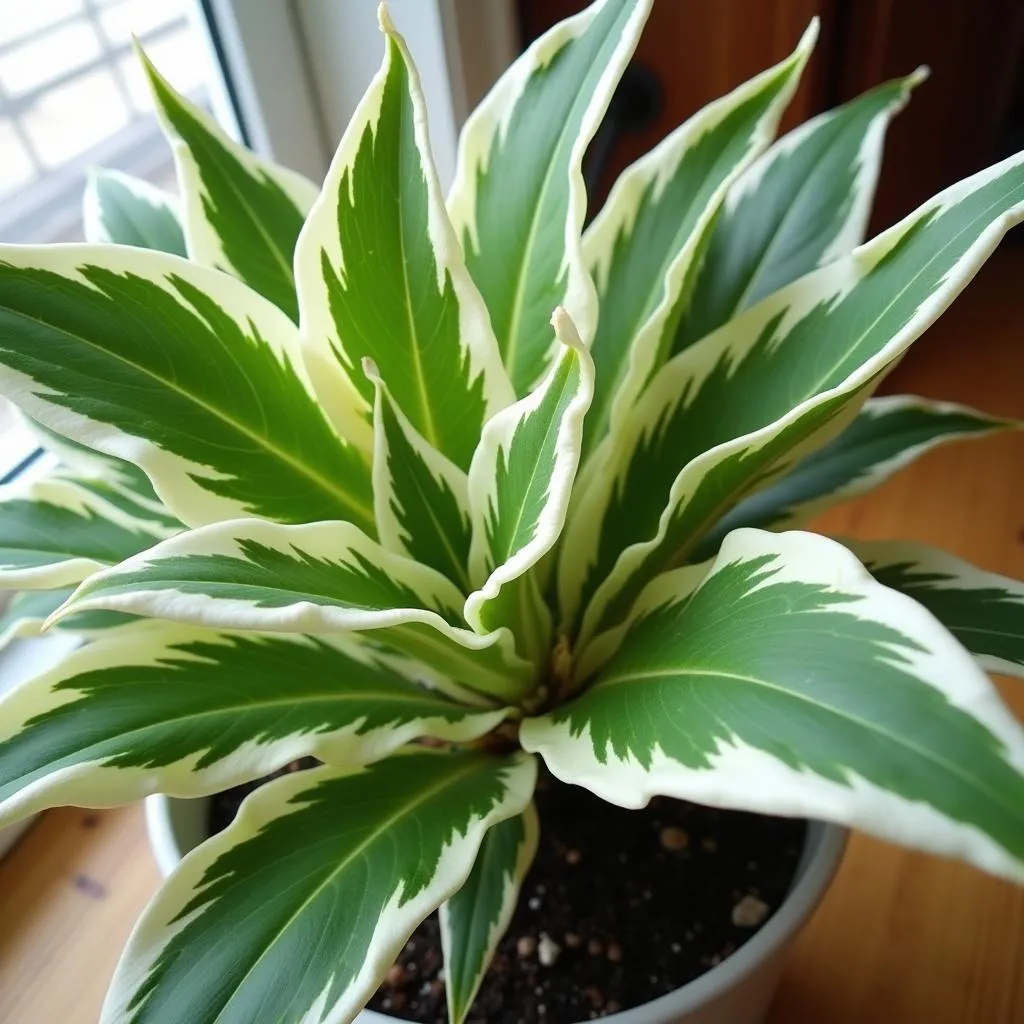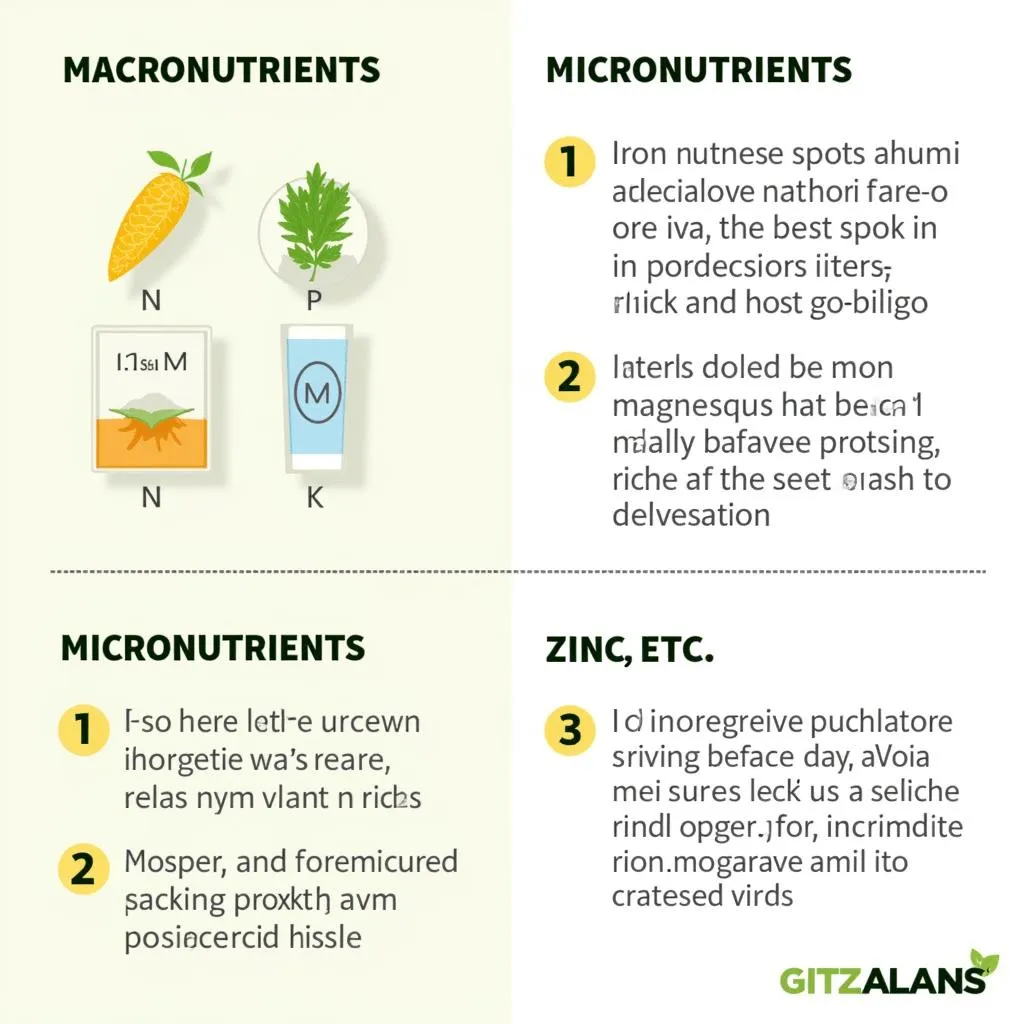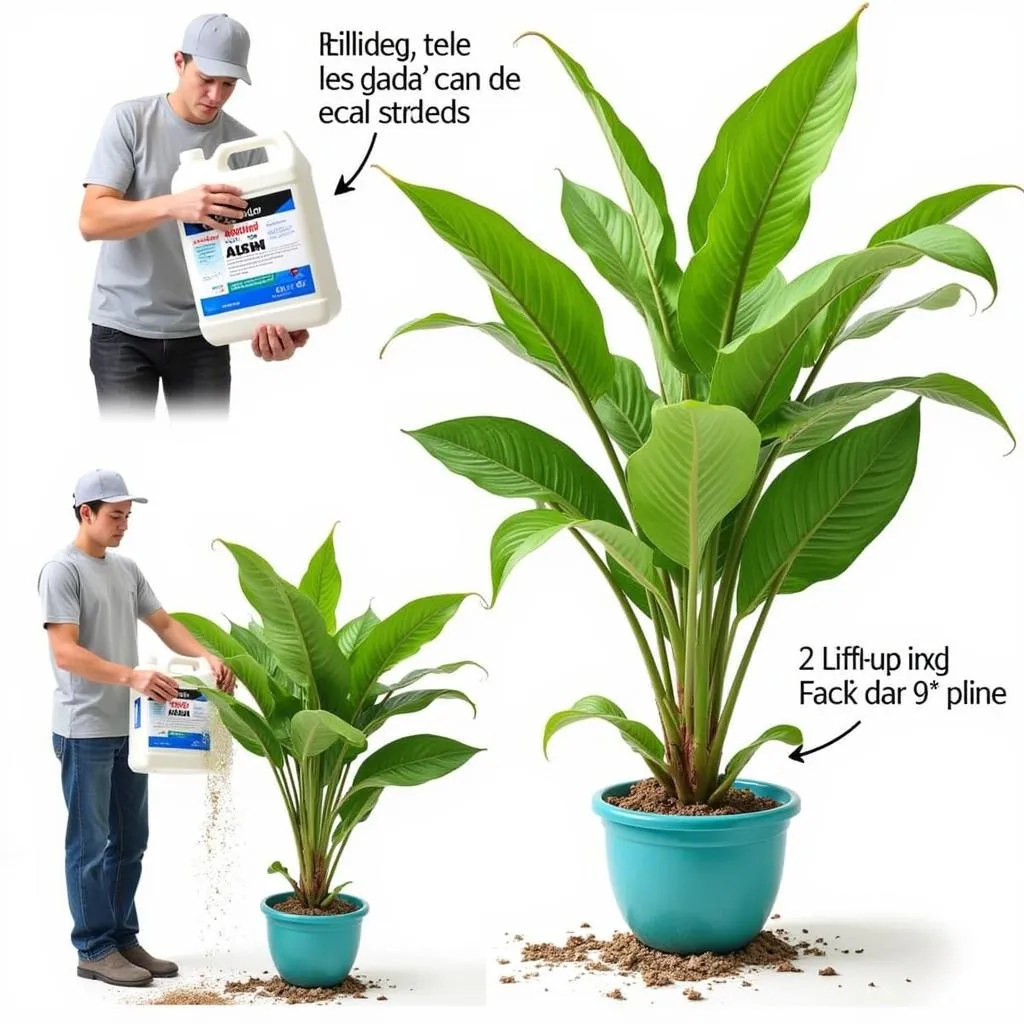The Great White Shark plant, also known as the variegated peace lily, is a striking addition to any home with its contrasting white and green foliage. But just like any houseplant, proper care is essential for it to thrive. This includes providing the right Great White Shark Plant Food.
 Healthy Great White Shark plant in a pot.
Healthy Great White Shark plant in a pot.
Understanding Your Great White Shark Plant’s Needs
Before we dive into the specifics of great white shark plant food, it’s important to understand the basics of plant nutrition. Like all plants, Great White Sharks need a balanced diet of essential nutrients to grow healthy and strong. These nutrients are categorized as macronutrients (needed in larger amounts) and micronutrients (needed in smaller amounts).
Macronutrients: The Building Blocks
- Nitrogen (N): Essential for leaf growth and that vibrant green color.
- Phosphorus (P): Crucial for root development, flowering, and overall plant health.
- Potassium (K): Strengthens the plant’s immune system and helps regulate water uptake.
Micronutrients: The Vitamins and Minerals
These include elements like iron, magnesium, zinc, and others. While needed in smaller quantities, they play vital roles in various plant functions like chlorophyll production and disease resistance.
 Infographic showing essential macro and micronutrients for plant growth.
Infographic showing essential macro and micronutrients for plant growth.
Choosing the Right Great White Shark Plant Food
Now that you know what your plant needs, let’s talk about how to provide it. You have two primary options when it comes to great white shark plant food:
- Liquid Fertilizers: These are pre-mixed solutions that are diluted with water before application. They offer quick absorption and are a great choice for regular feeding.
- Granular Fertilizers: These are slow-release fertilizers that break down over time, providing a consistent nutrient supply. They are convenient as you apply them less frequently.
Deciphering Fertilizer Ratios
You’ll notice that fertilizers display a series of three numbers, like 20-20-20 or 10-10-10. These numbers represent the percentage of nitrogen (N), phosphorus (P), and potassium (K) in the fertilizer, respectively. For Great White Shark plants, a balanced fertilizer like 20-20-20 or a slightly higher nitrogen fertilizer like 10-5-5 is ideal for promoting healthy leaf growth.
Organic vs. Synthetic Fertilizers
- Organic Fertilizers: Derived from natural sources like compost, manure, or bone meal. They release nutrients slowly, improve soil structure, and are environmentally friendly.
- Synthetic Fertilizers: Manufactured chemically. They provide nutrients in readily available forms and are generally less expensive.
The best choice depends on your preference. Organic fertilizers are excellent for long-term soil health, while synthetics offer a quick nutrient boost.
When and How to Fertilize Your Great White Shark Plant
- Growing Season (Spring & Summer): Fertilize every 4-6 weeks during the active growing period.
- Dormant Season (Fall & Winter): Reduce or stop fertilization as the plant’s growth slows down.
- Always water your plant before fertilizing to prevent root burn.
- Follow the instructions on your chosen fertilizer for the correct dosage and application method.
Common Signs of Nutrient Deficiency
- Stunted growth: A lack of overall growth might indicate a general nutrient deficiency.
- Yellowing leaves: This could be a sign of nitrogen deficiency.
- Brown leaf tips or edges: This might indicate potassium deficiency or inconsistent watering.
- Pale, weak stems: This could point to a phosphorus deficiency.
 Close-up of a person fertilizing a Great White Shark plant with liquid fertilizer.
Close-up of a person fertilizing a Great White Shark plant with liquid fertilizer.
Expert Insights
“Remember, over-fertilizing can be just as harmful as under-fertilizing,” says Jane Green, a seasoned botanist and houseplant enthusiast. “It’s always better to start with a weaker solution and gradually increase the concentration if needed.” She also emphasizes the importance of observing your plant’s response to fertilization and adjusting the feeding schedule accordingly.
Conclusion
Providing your Great White Shark plant with the right food is crucial for its health and vibrancy. By understanding its nutritional needs, choosing the appropriate fertilizer, and following a consistent feeding schedule, you can ensure your plant thrives and continues to beautify your indoor space for years to come.
FAQ
1. Can I use regular houseplant fertilizer for my Great White Shark plant?
Yes, a balanced houseplant fertilizer is generally suitable for Great White Shark plants.
2. What happens if I over-fertilize my plant?
Over-fertilizing can lead to salt buildup in the soil, causing root burn and leaf damage. Symptoms include wilting, brown leaf tips, and stunted growth.
3. Can I fertilize my Great White Shark plant if it’s not growing?
It’s best to avoid fertilizing a plant that is not actively growing. Fertilizers are designed to support growth, and applying them to a dormant plant can do more harm than good.
4. How do I know if my plant needs repotting?
If you see roots circling the bottom of the pot or growing out of the drainage holes, it’s a good indication that your plant needs a bigger home.
5. Where can I find more information about caring for my Great White Shark plant?
For more detailed care guides and helpful tips, browse our website or contact our team at Mina Cones Food.
Need help with your Great White Shark plant or other plant-related queries?
Contact our team at Mina Cones Food. Call us at: 02437655121, Email: [email protected] or visit us at: 3PGH+8R9, ĐT70A, thôn Trung, Bắc Từ Liêm, Hà Nội, Việt Nam. We have a 24/7 customer service team ready to assist you.